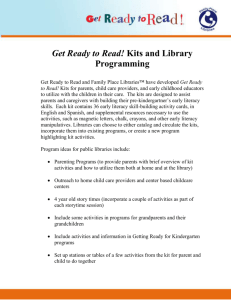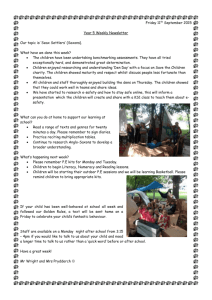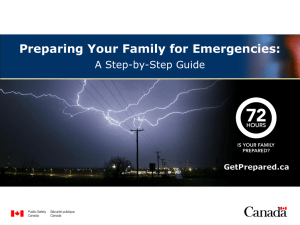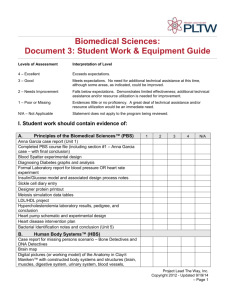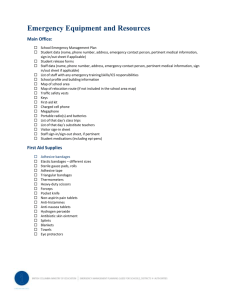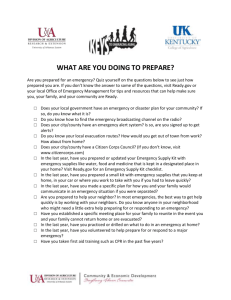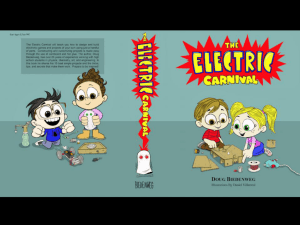April 15, 2010 - North Kitsap School District
advertisement
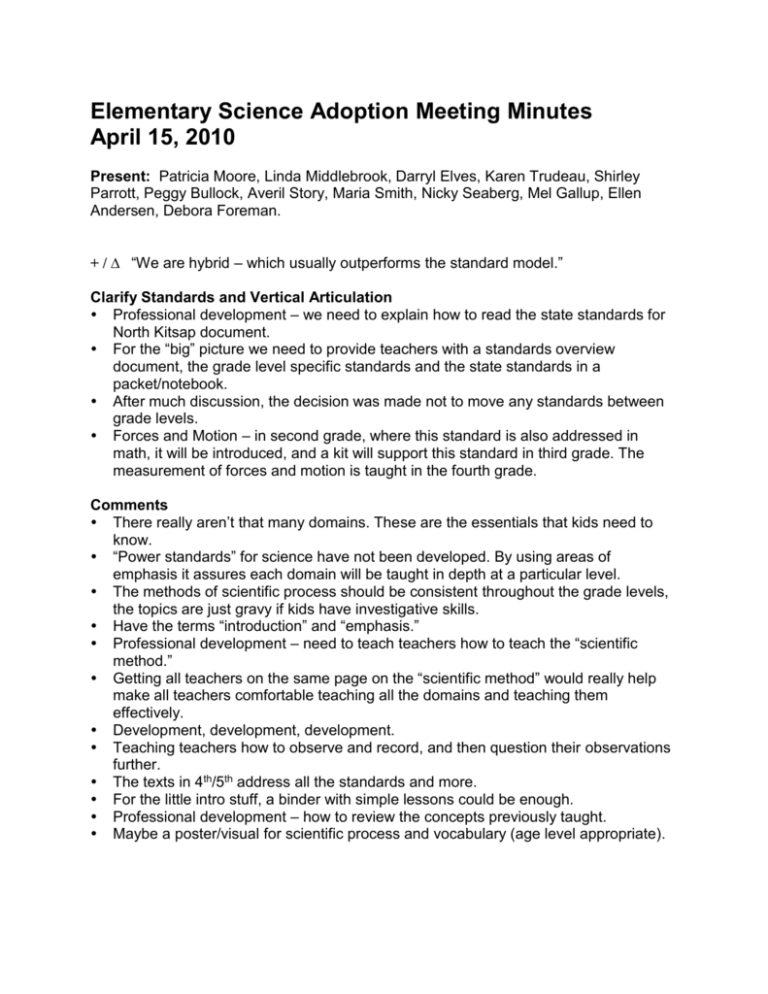
Elementary Science Adoption Meeting Minutes April 15, 2010 Present: Patricia Moore, Linda Middlebrook, Darryl Elves, Karen Trudeau, Shirley Parrott, Peggy Bullock, Averil Story, Maria Smith, Nicky Seaberg, Mel Gallup, Ellen Andersen, Debora Foreman. + / ∆ “We are hybrid – which usually outperforms the standard model.” Clarify Standards and Vertical Articulation Professional development – we need to explain how to read the state standards for North Kitsap document. For the “big” picture we need to provide teachers with a standards overview document, the grade level specific standards and the state standards in a packet/notebook. After much discussion, the decision was made not to move any standards between grade levels. Forces and Motion – in second grade, where this standard is also addressed in math, it will be introduced, and a kit will support this standard in third grade. The measurement of forces and motion is taught in the fourth grade. Comments There really aren’t that many domains. These are the essentials that kids need to know. “Power standards” for science have not been developed. By using areas of emphasis it assures each domain will be taught in depth at a particular level. The methods of scientific process should be consistent throughout the grade levels, the topics are just gravy if kids have investigative skills. Have the terms “introduction” and “emphasis.” Professional development – need to teach teachers how to teach the “scientific method.” Getting all teachers on the same page on the “scientific method” would really help make all teachers comfortable teaching all the domains and teaching them effectively. Development, development, development. Teaching teachers how to observe and record, and then question their observations further. The texts in 4th/5th address all the standards and more. For the little intro stuff, a binder with simple lessons could be enough. Professional development – how to review the concepts previously taught. Maybe a poster/visual for scientific process and vocabulary (age level appropriate). Elementary Science Adoption Meeting April 15, 2010 Page 2 Instructional Materials Definitions: Kits: Self contained - all supplies included: lessons, experiment, teacher and student supplies. (STC / Foss/ District) Supplemental Materials Box: A box that contains lessons and consumable and nonconsumable experiment supplies for kindergarten standards and 4th/5th grade textbook experiments. Textbooks: For 4th and 5th grades only. Binders: We would like to supply a binder for each grade level that will include the standards documents and any lessons not addressed by kits. Comments: The group went through a lengthy discussion and reviewed feedback to decide if kits and textbooks would be recommended for both 4th and 5th grades. The decision was: 2 kits per grade levels 1st through 5th. Kindergarten – 0 kits. The committee wants the district to COMMIT to all supplies and maintain the supplies Mini science fairs constantly within the class (multiple attempts with the “SP”). An inquiry kit won’t teach you how to teach it but provides the resources. It provides the support after the professional development. Darrell commented that “it’s not rocket science.” Inquiry “kits” could easily be constructed by the district. Even split between the two grades in the grade level bands. Peggy will ask Laurie Dundi about Bainbridge Island’s insights with Foss. Sharing – do we need teacher input regarding sharing a kit? We may be able to buy more kits. It is very likely that we will choose different companies for different kits. Instructional Materials by Grade Level K – Binder (Properties and Change) Inquiry book (for teachers) Supplementary materials box for Push/Pull and Plants 1- Binder (Properties and Change / Observing the Sun and Moon) Inquiry book Kit – Liquids and Solids Plants and Animals 2- Binder (Forces and Motion / Earth in Space) Kit - Matter Life Cycles / Biological Evolution 3- Binder (Energy / Earth Systems) Kit - Forces and Motion Ecosystems / Biological Evolution Elementary Science Adoption Meeting April 15, 2010 Page 3 4- Binder Textbook Supplemental materials box Kit - 5- Binder Textbook Supplemental materials box Kit - Variables Landforms Estimated Prices: Darryl posed the following questions: -What can we afford? -Should we start with one kit at each level so that teachers have something by September? -We need to move forward as a committee! Patricia reviewed that this year $100,000 is budgeted for elementary science adoption. If this committee’s recommendation exceeds that amount, we can make a proposal to Dr. Jones for additional funding. Patricia provided a very rough 1st draft price estimate. The committee spent the afternoon coming up with a more specific budget estimate (see attached). We ran out of time to discuss professional development and district-wide expectations. The next meeting will be held the last week of May after the MSP testing is completed. Elementary Science Adoption Meeting April 15, 2010 Page 4 Budget Draft (2 kits per school) Fifth grade: 500 Textbooks 23 Teacher Edition 23 Teacher Test Generator CD Foss kit – Variables Landforms $36,356.64 $5,840 $46,720.00 Fourth Grade: Same as above – 2 kits Third Grade: 2 kits Supplementary Materials $46,720.00 $12,800 $2,500 $15,300.00 Second Grade: 2 kits Supplementary Materials $14,260 $2,500 $17,180.00 First Grade: Inquiry book 2 kits Supplementary Materials $1,440 $12,800 $1,200 $15,440.00 Kindergarten: Inquiry book Supplementary Materials $1,000 $1,500 $2,500.00 Cost to replenish kit materials: To be shared $3,200.00 $145,013.28 Questions The second column does not add up correctly (adds to $183,416.64) Some of the first column figures do not add up to the second column extension ($14,260 and $2,500 add to $16,760) Are the first column figures for both kits times 7 elementary schools? PAL not included? Supplementary materials and Inquiry book – does cost = 1 per school? Or accounts for all 7 schools? Is the $5,840 for the Foss kits for both kits x 7 schools? (Approximate cost per kit?)
